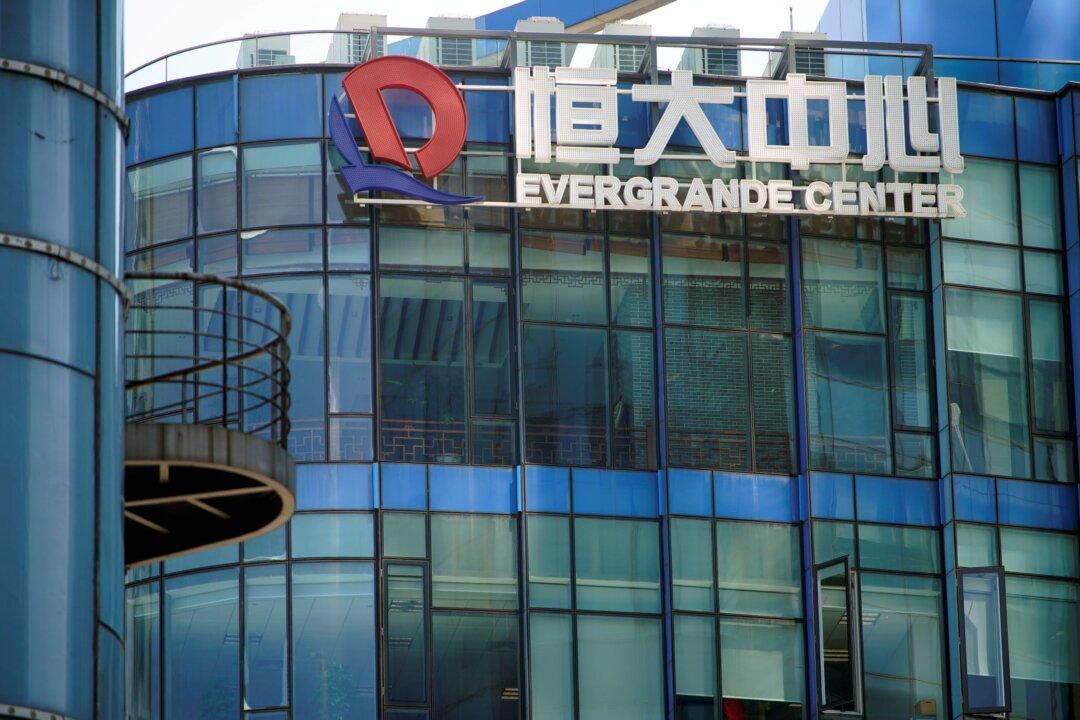SINGAPORE/SHANGHAI—China’s Evergrande agreed to settle interest payments on a domestic bond on Sept. 22, while the Chinese central bank injected cash into the banking system, temporarily soothing fears of imminent contagion from the debt-laden property developer.
Evergrande, Asia’s biggest junk-bond issuer, is so entangled with China’s broader economy that its fate has kept global stock and bond markets on tenterhooks as late debt payments could trigger so-called cross-defaults.





